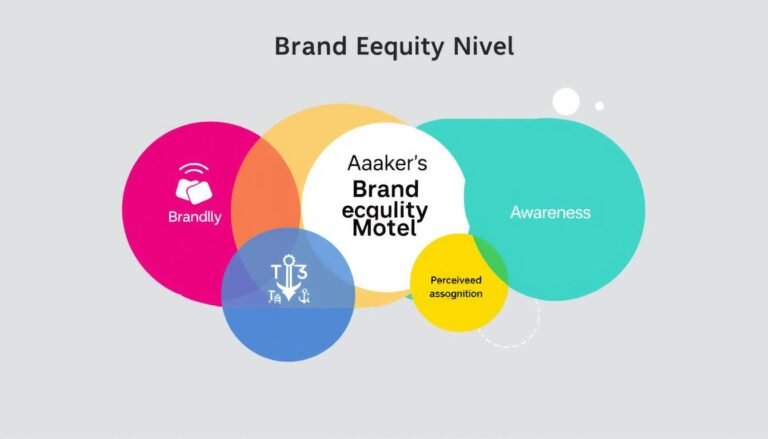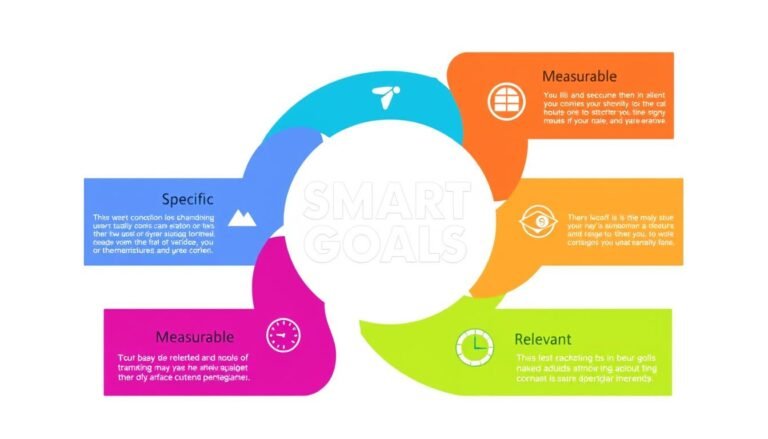Value Creation in Business Strategy – Maximizing Stakeholder Value
Did you know that more Americans have lost trust in big business? In 1997, 27% felt that way, but by 2019, it was 34%. This shows a big change in how we see business today. Now, making sure everyone involved feels valued is key.
Big companies used to focus on making more money fast. But this approach hurts their future success. By focusing on adding value, businesses can make everyone, from workers to customers, happy. This way, they can grow for the long run.
The Business Roundtable made a big change in 2019. They said they would put all stakeholders first, not just shareholders. By knowing what each group needs, companies can make better choices. This helps them stay strong in a changing market.
Key Takeaways
- Public confidence in big business has declined significantly over the past two decades.
- Short-term profit maximization can jeopardize long-term value creation.
- All stakeholders, including customers and employees, play a critical role in Business Value Optimization.
- Value creation strategies can enhance a company’s overall market value.
- Effective corporate governance is essential in balancing stakeholder interests.
Understanding Value Creation in Business Strategy
Businesses are changing how they think about value creation. They now focus on improving value for all stakeholders, not just shareholders. This change means looking at more than just money. It includes being ethical, sustainable, and responsible.
The Shift from Shareholder Value to Stakeholder Value
Before, making money for shareholders was the main goal. Now, companies are listening to different groups. For example, Apple Inc., started in 1976, makes products that customers love. This shows how focusing on value can lead to lasting success.
Importance of Long-Term Value Creation
Creating value over the long term is key for lasting growth. Making quick money can hurt a company’s future. Patagonia, despite legal issues, stays true to its values. This shows the power of focusing on integrity and innovation.
Defining Key Stakeholders in Business
Identifying key stakeholders is crucial. They include employees, owners, investors, customers, and suppliers. Working with these groups helps businesses succeed. Companies that meet the needs of everyone involved tend to do better in the long run.
Value Creation in Business Strategy – Maximizing Stakeholder Value
Finding the right balance between short-term gains and long-term goals is key in business strategy. Executives often face pressure to meet immediate financial targets. This can risk the broader vision for sustainable growth.
Research shows that companies might cut long-term growth investments when revenue drops. This shows the challenge of choosing between short-term gains and ongoing value.
Balancing Short-Term Gains with Long-Term Objectives
Short-term profits are often the main focus, but this can harm long-term growth. For example, firms might cut investments by about 17% after a 15% revenue drop. This could hurt their competitive edge over time.
However, companies that focus on long-term goals and stakeholder interests do better. They often see shareholder returns that are 80% to 110% higher over ten years.
The Role of Corporate Governance in Value Creation
Good corporate governance is key to balancing short-term profits and long-term strategy. It encourages moving resources around and innovating. Decisions should also focus on stakeholder welfare.
Over 57% of executives believe that ESG initiatives add to long-term value. So, adding these programs into corporate strategy is crucial.
Examples of Companies Successfully Maximizing Stakeholder Value
Some companies show how to boost stakeholder value. For example, Alphabet invests in educational tools for social good. This improves its reputation and profits.
Lego engages with the community, building strong ties with consumers and stakeholders. This approach boosts brand loyalty. These examples prove focusing on stakeholder value brings lasting benefits for the company and its community.
Implementing Value Creation Strategies
In today’s fast-changing business world, it’s key to have strong value creation strategies for lasting success. Knowing what stakeholders need is crucial for making these strategies. Companies must talk with everyone from employees to customers to suppliers. This helps them understand what people expect.
Identifying Stakeholder Needs and Expectations
Finding out what stakeholders want takes a thoughtful plan. Employees and investors look for financial gains. Customers and others want to feel valued. By listening to everyone, companies can better meet their needs. This leads to better engagement and results.
Integrating Environmental, Social, and Governance (ESG) Factors
Adding ESG practices is a must for businesses today. It helps meet stakeholder needs and builds long-term value. Companies that focus on ESG often get a better reputation and stronger stakeholder ties. This approach also helps with sustainability and resilience.
Case Studies of Effective Value Creation Practices
Looking at successful companies shows us how to create value well. Top firms use data from places like the Drucker Institute and Just Capital to check their efforts. They focus on both money and other values without losing out on profits. Key steps include strategic changes, making the most of assets, and improving how things work.
Challenges in Maximizing Stakeholder Value
Companies face many challenges when trying to boost stakeholder value. Different groups often have different goals. This can make it hard to make decisions that please everyone.
Decisions made to help one group might not help others. This can cause problems and slow down the goal of increasing stakeholder value.
Navigating Conflicting Interests Among Stakeholders
Stakeholders like shareholders, employees, customers, and communities have different needs. For example, focusing on profits might help shareholders but could harm employees or communities. Companies need to find a way to balance these different needs.
Addressing Short-Termism in Business Decisions
Short-term thinking is a big problem for long-term stakeholder value. Companies often focus on quick financial gains instead of sustainable growth. This can lead to ignoring long-term strategies that benefit everyone involved.
Switching to a focus on long-term value can create a better business model.
The Impact of External Market Forces on Value Creation
External factors can make it hard for companies to improve stakeholder value. Things like economic changes, shifts in what customers want, and new laws can affect a company’s plans. Companies need to be quick to adapt to these changes to meet everyone’s needs.
Conclusion
Value Creation in Business Strategy has changed a lot. We now focus more on stakeholders than just shareholders. Today’s businesses need to think about the needs of customers, employees, and communities. This way, they stay relevant and sustainable in a changing market.
It’s crucial to balance economic, social, and environmental factors. Companies that focus on their stakeholders build trust and grow stronger. History shows that ignoring stakeholder needs can lead to problems and slow down growth.
The new stakeholder theory shows how important managing stakeholders is for success. By making value for everyone, businesses can build strong relationships and help their communities. This approach ensures the company’s success and creates a better economy for everyone.
Source Links
- Value Maximization and Stakeholder Theory
- The value of value creation
- Value creation in business: importance, concepts, & examples
- Value Creation Definition, Model, and Examples in Business
- How executives can help sustain value creation for the long term
- How to create value in an evolving business environment
- Stakeholder Capitalism for Long-Term Value Creation
- How Do Businesses Create Value for Stakeholders?
- How to Create a Stakeholder Strategy
- Value Creation
- Optimizing Stakeholder Values | AACSB
- What Is Stakeholder Theory? Benefits, Challenges & Application
- Shareholder value vs. stakeholder value 2.0: from rhetoric to reality
- Edward Freeman and Heather Elms | The Social Responsibility of Business Is to Create Value for Stakeholders







